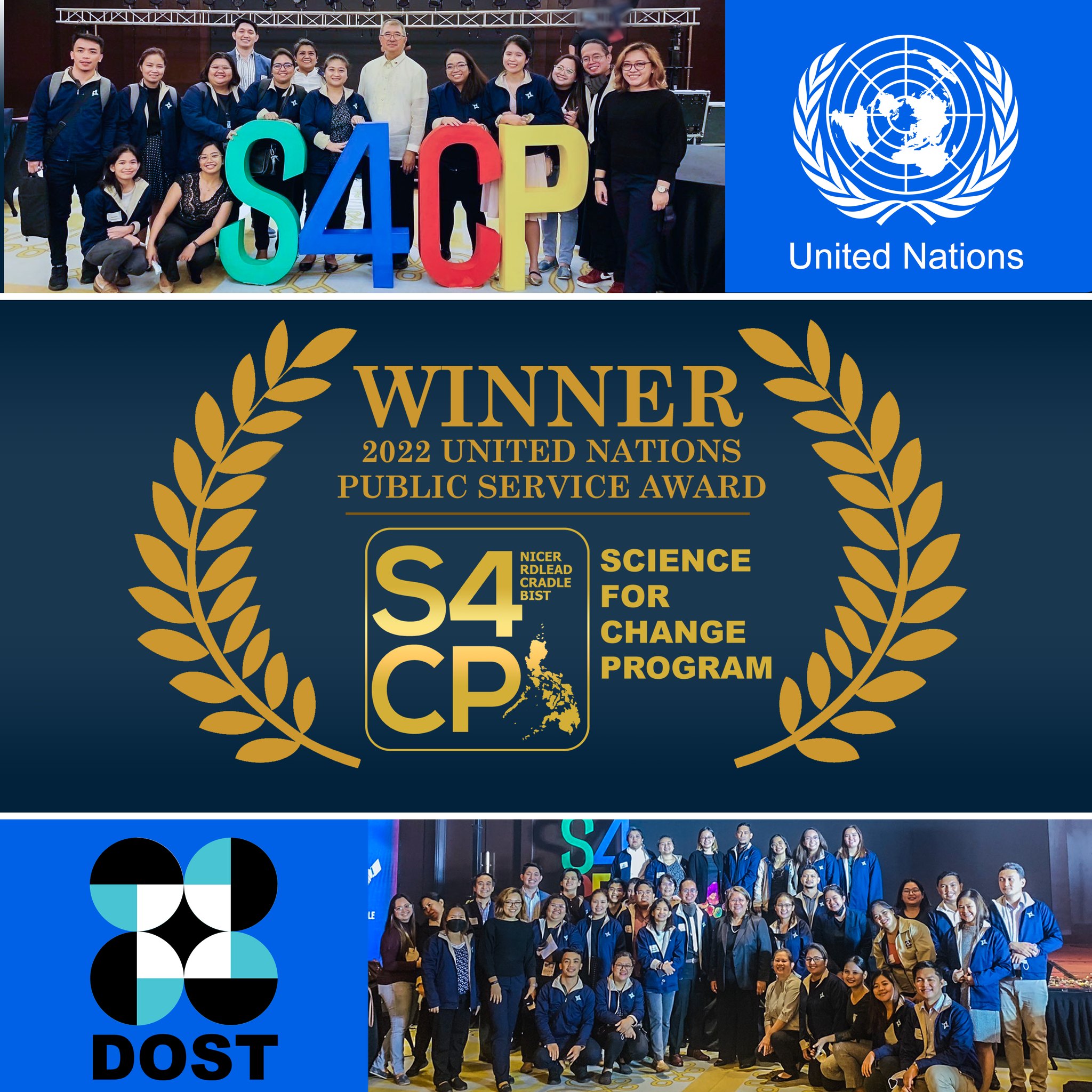News
PH’s Science for Change Program wins UN Public Service Award

The DOST-Science for Change Program won the 2022 United Nations Public Service Award under the category “Enhancing the Effectiveness of Public Institutions to Reach the SDGs”. (Photo: DOST-Science for Change Program/Facebook)
The UN, during its Public Service Day event, cited the Department of Science and Technology’s (DOST) outstanding achievement that showcased excellence in serving the public interest.
“This is an award that rewards the creative achievements and contributions of public service institutions that lead to a more effective and responsive public administration. This is a fitting recognition of the high caliber performance demonstrated by the S4CP, which is led by Undersecretary Rowena Cristina Guevara,” DOST Secretary Fortunato de la Peña said in a virtual press conference on Thursday.
He said the S4CP was a concept back in 2016. Through Guevara and her team, the DOST regional offices and sectoral councils came up with a program that aimed to creatively change the way science and technology (S&T), and the outputs of research and development (R&D), are integrated into society.
The S4CP, which focuses on an accelerated R&D program for capacity building of R&D Institutions and industrial competitiveness, is composed of four sub-programs: (1) Niche Centers in the Regions for R&D (NICER), (2) R&D Leadership (RDLead), (3) Collaborative Research and Development to Leverage Philippine Economy (CRADLE), and (4) Business Innovation Through S&T (BIST) for Industry.
Guevara described the S4CP as an enabler of an inclusive innovation ecosystem as the program creates R&D opportunities for stakeholders and key industry players, addressing societal problems that translate to community transformation and regional and national socio-economic development.
“Before the S4CP, funding for R&D is confined within Metro Manila and nearby provinces. Lack of opportunities in the regions prompted Filipino scientists to take alternative careers or worse, bring their genius to other countries. More often, our local businesses, most of which are micro, small, and medium enterprises, have no choice but to invest in foreign-made technologies to sustain operations and build up their competitiveness,” de la Peña said.
“By encouraging partnerships between the government, academe and industry, we forge deeper connections that bring S&T into the core structure of local companies,” he added.
He said through the S4CP, the DOST has enhanced the effectiveness of public institutions across the country by establishing R&D infrastructures, collaborative R&D, technology acquisition, and capacity building.
De la Peña said through these initiatives, the public could see the delivery of S&T to Filipinos.
To date, there are 43 NICERs or R&D centers in 17 regions with PHP2.3 billion grants distributed to higher education institutions.
The S4CP has also produced 86 partnerships between the academe and research and development institutions (RDIs) and the industry.
Grants for CRADLE partnerships to solve problems of companies amounted to PHP396.6 million.
BIST financial assistance for technology acquisition of local companies, on the other hand, reached PHP43.3 million.
The RDLead program has funded 65 RDLeaders with PHP59.91 million in 63 host institutions.





















